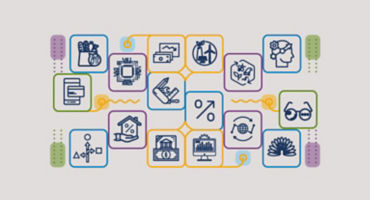The technologies and devices transforming treatment — Powerful innovation within medtech is revolutionising our ability to treat complex illnesses and conditions, as advances in hardware, software and bioinformatics combine to drive more effective treatments.
For example, robotic-assisted surgery penetration has grown as improvements in hardware and software have led to greater efficacy. Initially relegated to a few specialities in urology, robotic surgery is increasingly being used for multiple categories within general surgery that were historically performed via laparoscopy or open surgery, as the technology allows complex procedures to be performed with greater precision, flexibility and reproducibility. We anticipate data playing a bigger role, for example empowering health systems to leverage informatics to compare surgical KPIs and monitor surgeon quality. Future advances will further transform surgery, with a focus on areas such as improved pre-surgical visualisation and biopsies, enhancing both accuracy and access to treatment, as well as continued informatics.
Genetic sequencing technology has evolved significantly, developing brand new ecosystems both on the front end and back end of treatment algorithms; these technologies can both screen and diagnose genetic abnormalities earlier as well as treat later-stage disease with targeted therapeutics. The sector's leading companies have driven tremendous advances during the last 15 years, making a once laborious process faster and more streamlined. Hardware has also improved; DNA sequencing tools continue to evolve, with “third-generation” technologies able to detect more obscure genetic variants as well as drive down the cost curve of whole genome and exome sequencing costs. Genetic testing is essential for both diagnosing patients as well as deploying the most effective targeted therapeutic; once a mutation is identified, the patient can be matched to the most effective drug developed to target their individual disease. Bioinformatics tools and resources are further speeding up the process of developing, optimising and testing drugs (Figure 1) and we expect advances within AI to further assist with drug discovery, by quickly identifying more promising drug candidates and improving the speed of the entire process.















Trends and transformation distilled: Our 2024 outlook in brief
Continue readingMultiple authors